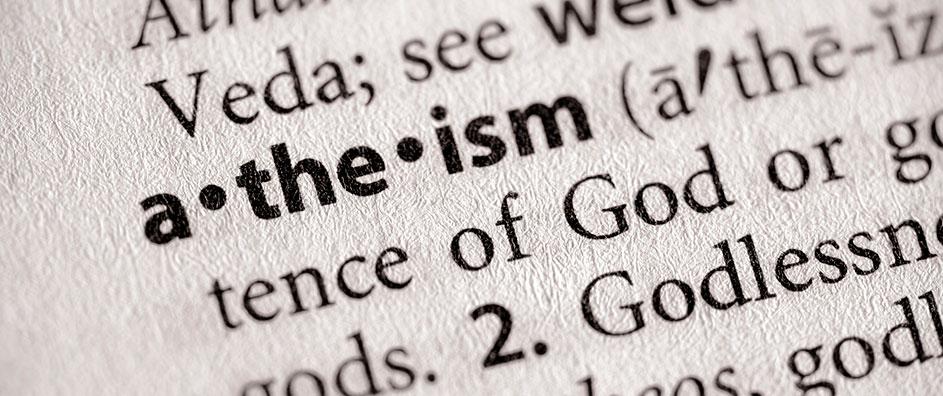The discourse surrounding the existence and nature of God has evolved through centuries, often catalyzing divisions between differing ideological camps. The emergence of new atheism—a philosophical current that champions rationalism and skepticism towards religious dogmas—poses intriguing dilemmas. Within this context, the Baha’i Faith provides a novel response, particularly concerning the concept of God incarnate. The teachings of Baha’u’llah, founder of the Baha’i Faith, offer a compelling examination of divinity that transcends traditional religious boundaries. Below is an exploration of Baha’i perspectives on God incarnate, engaging with questions posed by new atheists while promising a shift in understanding and piquing curiosity.
1. Understanding God in Baha’i Thought
Central to the Baha’i belief system is the notion of an unknowable God—a transcendent entity that cannot be fully comprehended by human intellect. Baha’is hold that God’s essence is distinct from His manifestations. These manifestations, such as Moses, Jesus, Muhammad, and Baha’u’llah himself, serve as intermediaries who reveal the divine will and purpose to humanity. This framework invites an exploration of incarnation, challenging the binary notion of a remote God versus a personable deity.
2. Divine Manifestations: A Spectrum of Incarnation
The terminology of “incarnation” typically conjures images of a singular event, such as the Christian interpretation of Jesus Christ. However, Baha’i theology proposes a continuous series of divine manifestations throughout history. Each figure, embodying the divine attributes, reflects God’s guiding presence in the world. This view engenders a dynamic understanding, one that sees divine truth as progressively revealed rather than confined to a singular historical moment. The implication is profound: if truth evolves through various manifestations, can new atheistic critiques be viewed in light of historical revelations rather than contemporary absolutes?
3. The Role of Rational Inquiry
New atheists often herald rationalism as the foremost means of approaching truth. In this vein, Baha’i teachings resonate with the need for critical thought and intellectual rigor. The Baha’i approach does not eschew rational inquiry but rather embraces it, suggesting that faith and reason can coexist harmoniously. The assertion that science and religion are complementary rather than contradictory invites atheists to reconsider the dogmatism that may characterize their critiques. By directing attention toward the compatibility of faith with reason, Baha’i thought promotes a profound dialogue on the nature of truth as a multifaceted pursuit.
4. Ethical Dimensions: Societal Implications of Divine Teachings
Examining the divine through the lens of ethical responses to societal challenges elucidates further pathways for understanding. Baha’i teachings emphasize the oneness of humanity, justice, and the alleviation of poverty. These principles echo concerns often raised by atheists regarding morality devoid of divine inspiration. The Baha’i Faith does not posit that morality is exclusively the province of theism; instead, it advocates for a system of ethics grounded in the collective betterment of society. The discussion shifts from theological disputes to real-world manifestations of faith through action, thereby inviting atheistic perspectives to engage in the ethical discourse.
5. The Concept of Progress in Spiritual Understanding
Progress and evolution—both spiritual and social—lie at the heart of Baha’i teachings. Rather than perceiving religious evolution as heretical, Baha’is view it as integral to God’s plan. Baha’u’llah’s revelations suggest that humanity’s understanding of the divine and ethical imperatives will continue to evolve. This progressive understanding stands in contrast to the static doctrines sometimes advanced by traditional religious institutions, which can stymie intellectual and spiritual growth. The continuous quest for understanding can serve as a bridge between atheistic skepticism and spiritual inquiry.
6. Interfaith Dialogue and Unity
In a world increasingly fractious in its spiritual beliefs, Baha’i teachings advocate for interfaith dialogue as a means for fostering unity among diverse belief systems. Engaging with new atheism requires openness and a willingness to explore common ground. The Baha’i principle of unity in diversity underscores that differing perspectives—whether theistic or atheistic—can contribute to a richer understanding of the human experience. Acknowledging shared values and common goals can shift conversations away from polarizing debates towards collaborative efforts in addressing global challenges.
7. A Call to Curiosity and Understanding
The Baha’i perspective on God incarnate entices a deeper inquiry into the nature of divinity itself. By inviting individuals from all walks of life to examine the intersections of faith, reason, and ethics, Baha’i teachings challenge prevailing dogmas, often espoused by new atheists, while simultaneously offering a viewpoint that fosters curiosity. This framework not only opens avenues for exploration but cultivates an environment of respectful dialogue where questions of existence, purpose, and morality can be examined collaboratively.
Conclusion
The dialogue between Baha’i teachings and new atheism may initially seem contentious, yet it promises the potential for profound spiritual enrichment and mutual understanding. By presenting a nuanced examination of God incarnate that encompasses historical, rational, and ethical dimensions, Baha’i perspectives prompt a re-evaluation of entrenched beliefs. Such discourse encourages a broader contemplation of the divine and challenges the boundaries of secularism, ultimately paving the way for enriched dialogues about existence—an endeavor that transcends belief systems and nurtures the human spirit.
